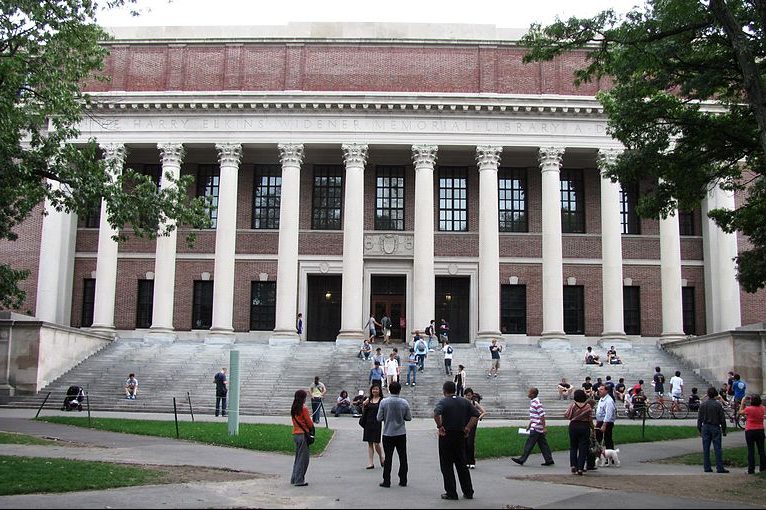Students Question Harvard Lawsuit Intentions
Widener Library, Harvard University, Cambridge Massachusetts.
November 20, 2018
While Students for Fair Admissions is suing Harvard for alleged use of quotas limiting the number of Asian Americans accepted, Asian American Roosevelt seniors and Harvard applicants seem dubious of the organization’s intentions.
Both sides of the lawsuit have been using statistics to try to prove their case. In response to some of the data mentioned by the plaintiffs, a senior, who asked to remain anonymous, said, “it’s like a little bit fishy, but like statistics can lie.” the senior continued, “I’m not really for sure, I think it’s a little bit suspect that… the Asian American population is growing but Harvard’s percent Asian American has stayed relatively the same.”
Senior Vincent Lan, who is considering applying to Harvard, pointed out that “the lawsuit alleges that they are denied acceptance because of low marks in the ‘personality’ aspect of the holistic admission process during their interviews. Who knows if Harvard is being bias[ed] against them or if they are truly uninteresting, boring people? It’s not like there is a scientific method to calculate how interesting someone is.”
Lan continued by criticizing Students for Fair Admissions and their lawyer, Edward Blum. “The plaintiffs themselves are not led by Asian Americans but rather a conservative lawyer bent on eradicating affirmative action. Asian Americans are pawns that he’s using to present his case, and if won, it would help white Americans more than Asian Americans.”
According to “What Abigail Fisher’s Affirmative Action Case Was Really About” published by ProPublica in 2016, Edward Blum, the President of Student’s for Fair Admissions, and his organization paid for the Fisher v. University of Texas lawsuit which ended up going to the Supreme Court. In that case, Ms. Fisher’s team argued that she was not accepted to UT Austin because the school’s affirmative action policies discriminated against her, a white woman.
Roosevelt seniors also expressed some uncertainty about the fairness of affirmative action. Katherine Tucker, who is applying to Harvard, said “looking at the college process, it’s whoever is the best fit for the school, is …who should go there… if Harvard’s a good fit for me and I’m a good fit for Harvard then I would hope that that would be enough grounds to be accepted, no matter what my race is.”
The anonymous source, approached the subject from another perspective. “…it kind of makes it feel…like minorities are competing against each other. Like, within, … their own race…even though, technically quotas are illegal, right?”
The plaintiffs in the current case argue that Harvard’s admissions policy does appear to utilize racial quotas. Racial quotas were made illegal in the 1978 Supreme Court Case, Regents of the University of California v. Bakke.
Lan said that he hopes that “colleges can see beyond my ‘average for an Asian’ grades and test scores and rather focus on my interesting personality, sincere acts of service, and ability to lead both inside and outside the classroom.”




Susan McIntyre • Nov 21, 2018 at 12:53 pm
This is a nicely written and well thought out review on this sensitive topic. Well done Mia!